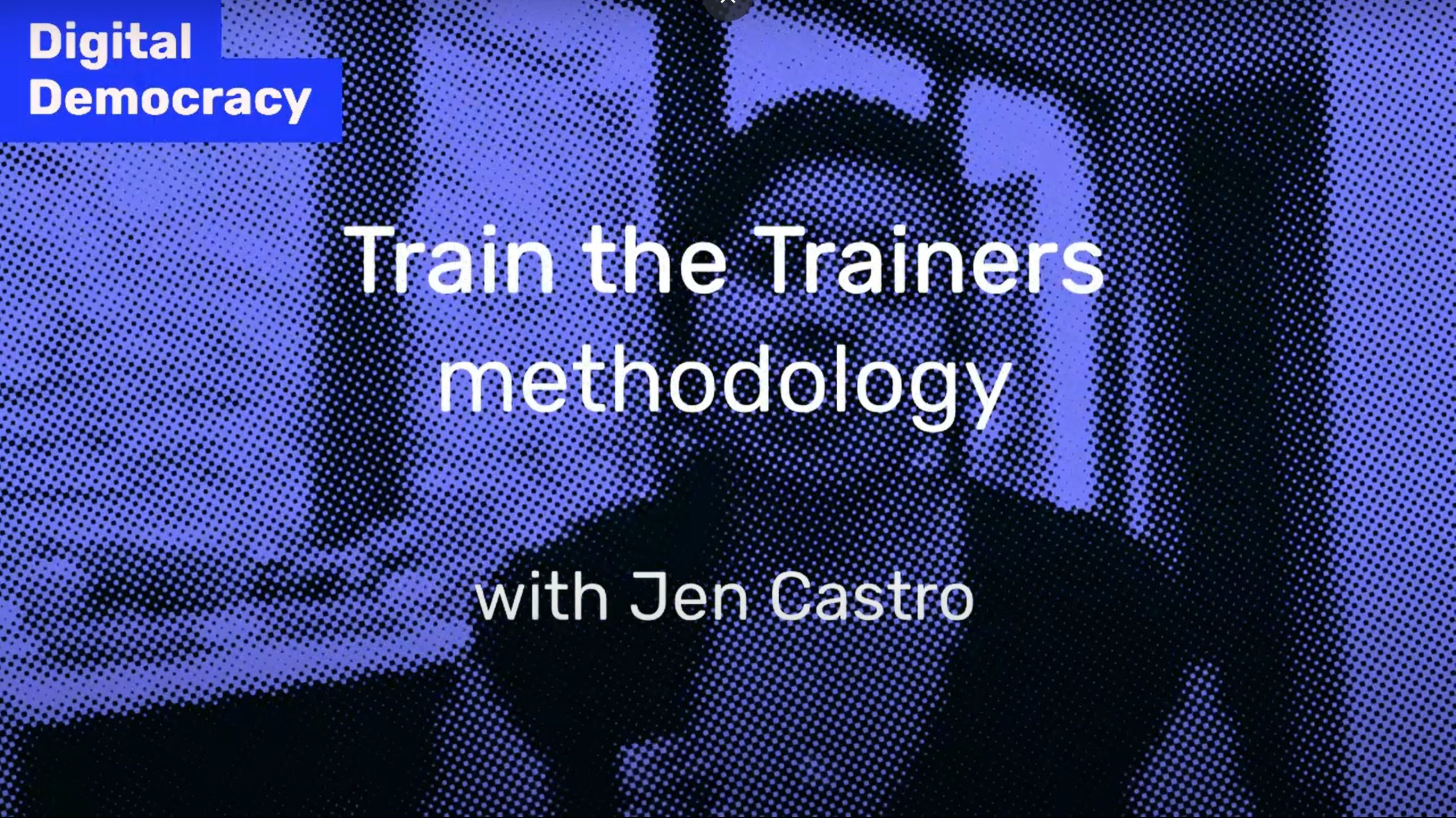The Train the Trainers methodology is a tool for empowering communities to build confidence and skills in a culturally relevant and accessible way while promoting as much autonomy and sustainability as possible.
In this methodology, communities decide which skills they want to learn, choosing those that are needed or relevant to them. Also, community members occupy the central role of trainers in a model that we call Teaching is Learning. The main principle at the core of this methodology are the beliefs that we all have skills and the ability to share them, and that we all have valuable contributions to make. This mindset encourages people to take on the development of their own skills and to share their knowledge with others, allowing for the distribution of knowledge in a more natural and decentralized way, and lays the foundation for more sustainable, grounded, and broad-based skillsets across the team.
The different phases of this methodology are:
- Research – talking to stakeholders to find out from where they are at and what their ability in regards to the relevant skillsets and experience working with tools, as well as the overall logistical context,
- Deliver a model training to future trainers – including notes and tips on best practices for trainers, and going over these details with the future trainers,
- Work through how to plan a training event – breaking down the components of the training (e.g. logistics, agenda, schedule, materials, etc.),
- Trainers deliver a training event to members of their community, with any external support or accompaniment if needed.
Some key ingredients for the success of these kinds of training events are:
- The goal and motivation behind the project, which should be the driving force behind investing the time and patience needed to learn a new skill,
- Properly understanding the context to provide only relevant information and skills,
- Funding to carry out these training events but also for communities to organize training events themselves,
- A safe space (both physically and emotionally) where people feel good and sufficiently comfortable to share and engage as a group, as well as feel brave about making and sharing mistakes (because making mistakes is one of the best ways to learn).
Watch this video on the Train the Trainers methodology to learn more about how it works, and to hear about different examples on how it has been used by Digital Democracy and their partners.

